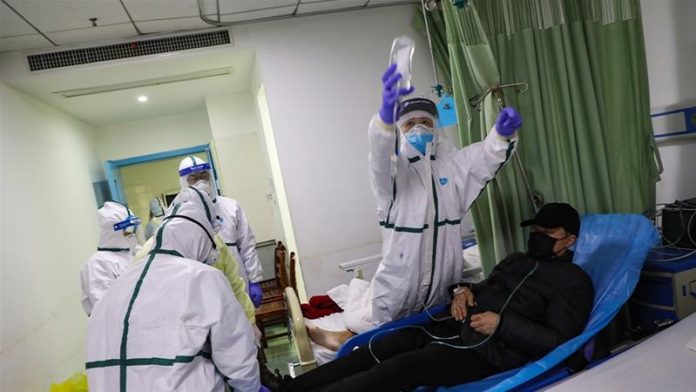|
Getting your Trinity Audio player ready...
|
More than a million cases of coronavirus have been registered globally, according to the latest figures from Johns Hopkins University – another grim milestone as the world grapples with the spreading pandemic.
Nearly 53,000 people have died and more than 210,000 have recovered, according to the US university’s figures.
The US has the most cases, and about 1,000 died there in the past day. The disease, Covid-19, first emerged in central China three months ago.
Though the tally kept by Johns Hopkins records one million confirmed cases, the actual number is thought to be much higher.
It took a month and a half for the first 100,000 cases to be registered. A million was reached after a doubling in cases over the past week.
Nearly a quarter of cases have been registered in the United States, while Europe accounts for around half.
What’s the latest?
On Thursday, Spain said 950 people had died in the previous 24 hours – thought to be the highest number of deaths of any country in one day.
The number of confirmed Spanish cases rose from 102,136 on Wednesday to 110,238 – an 8% rise that is similar to the rate recorded in previous days. Authorities believe the virus is now peaking and say they expect to see a drop in figures in the days ahead.
“We continue with an increase of around 8%. This points, as we have already seen, to a stabilisation in the data that we’re registering,” María José Sierra, from the Spanish health ministry’s emergency co-ordination unit, said at a news conference.
Spain, the second-worst hit nation in terms of deaths, has also lost nearly 900,000 jobs.
The US on Thursday said it saw a record 6.6 million new unemployment benefit claims.
How did we get here?
In China at the end of December, a 34-year-old ophthalmologist named Dr Li Wenliang tried to send a message to other medics warning them about a new virus in the city of Wuhan in Hubei Province.
He was later visited by the police and accused of scaremongering. Dr Li died on 6 February after contracting the virus while treating patients in Wuhan.
Source: BBC





